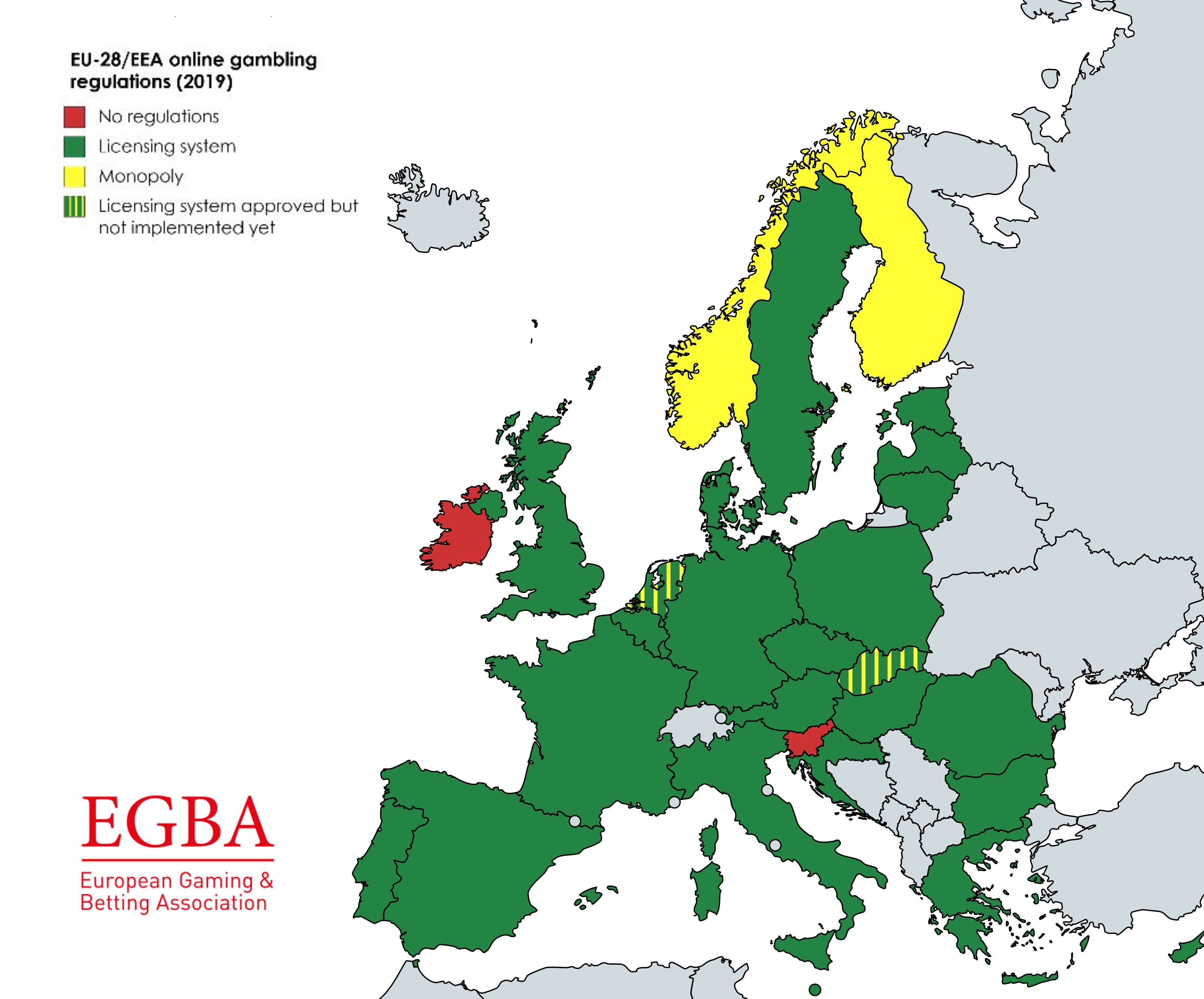Online Gaming Regulations
- New Jersey Online Gaming Regulations
- Nevada Gaming Control Board Regulation
- Pa Gaming Regulations
- Indiana Gaming Rules And Regulations
- Online Gaming Regulations China
International Online Gaming Laws. There is one type of global business which is proving to be a nightmare and a legal minefield in regards to worldwide legislation and that is the online gambling industry, having been around since the early 1990’s one would have thought that with this industry fast approaching 20 years of existence each. Emergency Rule 3000.190 clarifies the definition of 'applicant' under section 5.3(j) of the Illinois Gambling Act to include 'any person or entity which has directly or indirectly expressed interest to an official or employee of a host community in obtaining an owners license under the Act in that host community, regardless of whether that person or entity has submitted an application to the.
Thousands of Americans gamble online. But is online gambling legal? We break it down to show you what you can do, what you can't do, and what's still up in the air.
by Katherine Butler
updated September 03, 2020 · 2min read
Legislation and Regulations A number of laws and regulations have been drawn up to create the regulatory framework that covers the activities licensed by the Malta Gaming Authority (MGA). In this section you can find the English and Maltese versions of all the laws and regulations related to gaming. Whilst the Authority makes every effort. Experts in the testing and certification of online gambling systems. ECOGRA Established in 2003. Highly trained and specialised in the field of online gambling. Jurisdictional Approvals. Testing and Inspection. Products & Services. ADR/Dispute Mediation. The majority of online gambling legislation relates to companies that provide betting and gaming services over the internet, and it’s very unusual for the government of a country to make it explicitly illegal for its residents to use such services.
The legality of online gambling is ever-changing. But one thing is constant: it makes a lot of money. Online gambling industry makes an estimated $1 billion dollars annually. This is a huge business, and a lot of people have cashed in on it. But it has led to some ambiguous legal issues, as the legality of online gambling is constantly being challenged.
There are differences in the legality of making bets, taking bets, facilitating payments to casinos, and advertising on websites. And there are constantly new legal challenges. So here is a breakdown of the law on online gambling.
Legal Forms of Gambling
There is no federal law against placing a wager online. So, you can legally place a bet online. However, a wager must not be placed on a site located in the United States. There is a small chance players might run afoul of state law, but there is little chance of prosecution. The only case cited where a person got into trouble with a state was in 2003. Jeffrey Trauman of North Dakota paid a $500 fine on over $100,000 of online sports bet winnings.
Sites that are set up outside of the United States are legal. Therefore, gambling on websites located in areas like Australia, the Caribbean, and Latin America is legal. Just be very clear that the site you are playing on is not based on U.S. soil.
Definitely Not Legal Forms of Gambling
It is never legal to gamble on a website based in the United States. Also, if you are planning to operate an online gambling site, stay outside of the United States. You must also deal only with casino and poker wagers (not sports bets) from people in the US. And you cannot take bets over the phone from people in the United States.
New Jersey Online Gaming Regulations
Accepting online gambling advertising is also illegal. If you are a small publisher, you are less likely to be prosecuted, but why risk it? As of early 2009, only large and mid-size publishers had faced prosecution. In 2007, the three big search engines (Google, Yahoo, and Microsoft) each paid a fine for accepting online gambling ads, but did not face criminal charges. Other publishers, such as Esquire Magazine, have been warned by the government not to take online gambling advertising.
Facilitating the transfer of funds to online casinos is also a bad idea. As of 2006, it became illegal for American banks to process transactions originating from or directed toward any online gambling operator. Because of this, several sites then refused to take bets from American players. But as the law seems difficult to enforce, it has not turned the tide completely for American players.
Still up in the Air
Advertisers who promote sports books in magazines and on billboards may or may not face prosecution. So far, sports books have never been scrutinized for advertising online. And online casinos, poker rooms, and sports books have never been prosecuted for buying ads.
Online casinos and operators still accept American players. And international financial parties have continued to process their transactions. The legality is always changing and there have been attempts to declare online wagering against the law, but for now, U.S. citizens who simply place bets online are in the clear.
There is one type of global business which is proving to be a nightmare and a legal minefield in regards to worldwide legislation and that is the online gambling industry, having been around since the early 1990’s one would have thought that with this industry fast approaching 20 years of existence each different country would have a robust set of rules, laws and legislation in place to cover it.
However nothing could be further than the truth, as this has proven to be an industry which has become one of the fastest growing and hugely successful online phenomenons where governments across the globe have been very slow to react, and even now the legal aspects of gambling online can often be cloudy and obscure.
Some countries however have been very welcoming of online gambling, places like Gibraltar and the Caribbean as well as Malta and Kahnawakee have quickly become established legal jurisdictions for gambling companies, and these places have in place a robust set of rules and regulations in place which allows them to both monitor and regulate this industry whilst also taxing and licensing such gambling businesses.
There are however some countries who have been dragging their feet in regards to online gambling, one noticeable country is the US, in 2006 they passed piece of legislation that made it illegal to send money to a gambling site, however this didn’t cover customers in that country actually placing wagers at such a gambling site and as such many companies are circumventing this law.



In the UK they recently brought in their Gambling Commissions set of rules and regulations in regards to licensing and regulating such sites, and as such any online gambling site wishing to have their servers based in the UK could and would have to pay taxes and licensing fees to do so. However this was not readily taken up by online gambling companies as the fees and taxes charged were much higher than other jurisdictions.
Another aspect of the Gambling Commissions policies which added much confusion and compounded the problem was that they issued a list of what are known as white listed jurisdictions, these are licensing jurisdictions which the Gambling Commission recognizes and as such if an online gambling company holds a license in such a jurisdiction they can legally promote their company to UK residents.
Nevada Gaming Control Board Regulation
This meant an operator of a gambling site could quite easily get a much lower cost of operating license and pay a much lower rate of tax by simply getting licensed in one of these other jurisdictions, and could then legally advertise their product and gambling services to UK residents.
The UK Gambling Commission are now urgently reviewing and amending their Gambling Laws in the hope that they will attract more licensees and make becoming licensed and regulated in the UK more cost efficient for operators.

Some other European countries have also been bringing out their own rules and laws in regards to online gambling and this adds even more confusion in regards to gambling site operators offering services to residents of those countries.
Pa Gaming Regulations
Spain have recently brought in their own laws in regards to online gambling and as such any operator wanting to legally promote their business and allow Spanish citizens or residents of Spain to legally gamble at their respective gambling sites now need to apply for and get a Spanish online gambling license.
Indiana Gaming Rules And Regulations
Due to the confusion caused by the many different and unique online gambling laws and regulations from different countries, there are lots of online gambling companies operating online casinos, online better sites as well as online bingo and poker sites who simply do not comply with any individual countries laws in regards to whom they permit to gamble at their respective sites.
Online Gaming Regulations China
Many such companies simply apply for a gambling license or even a simple company license in a country offering them at reduced rates and then permit anyone to gamble at their sites, and as such this often puts the users of these gambling sites at great risk, as they have no legal protection or help available should they run into any problems at such a site. This is one industry that really does need to be heavily supervised and monitored, and eventually it may be, but currently it most certainly isn’t!